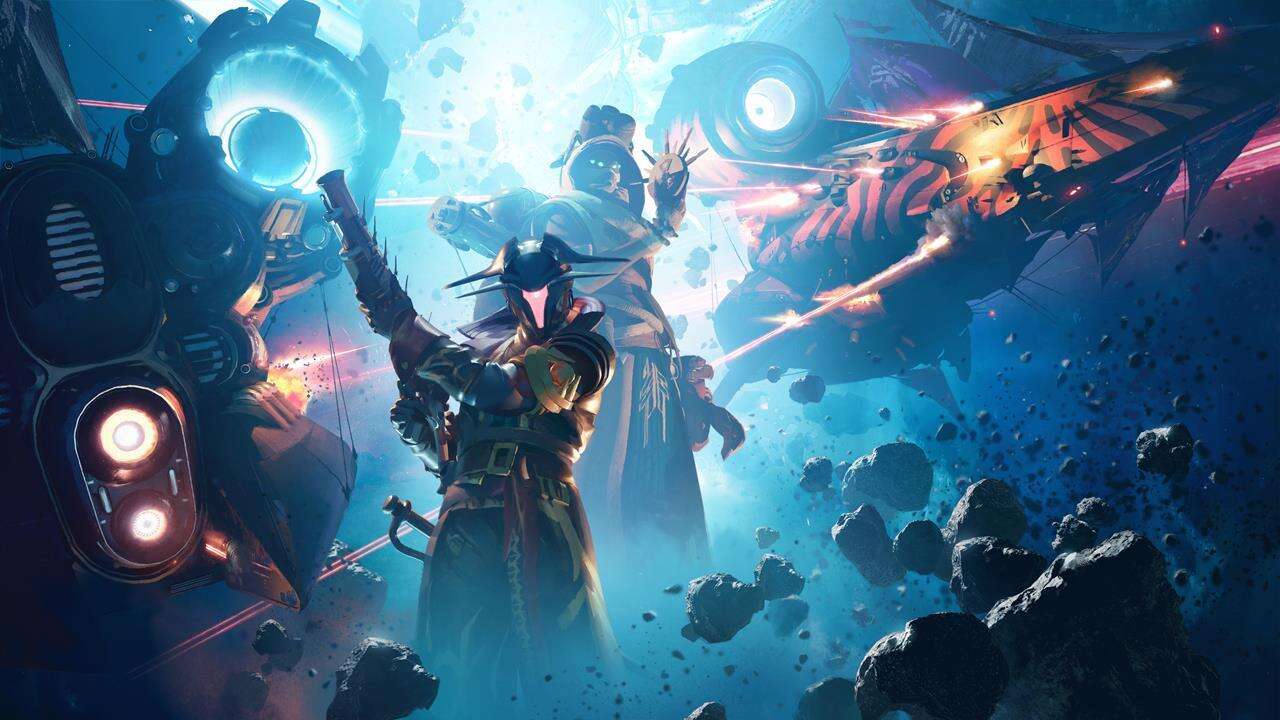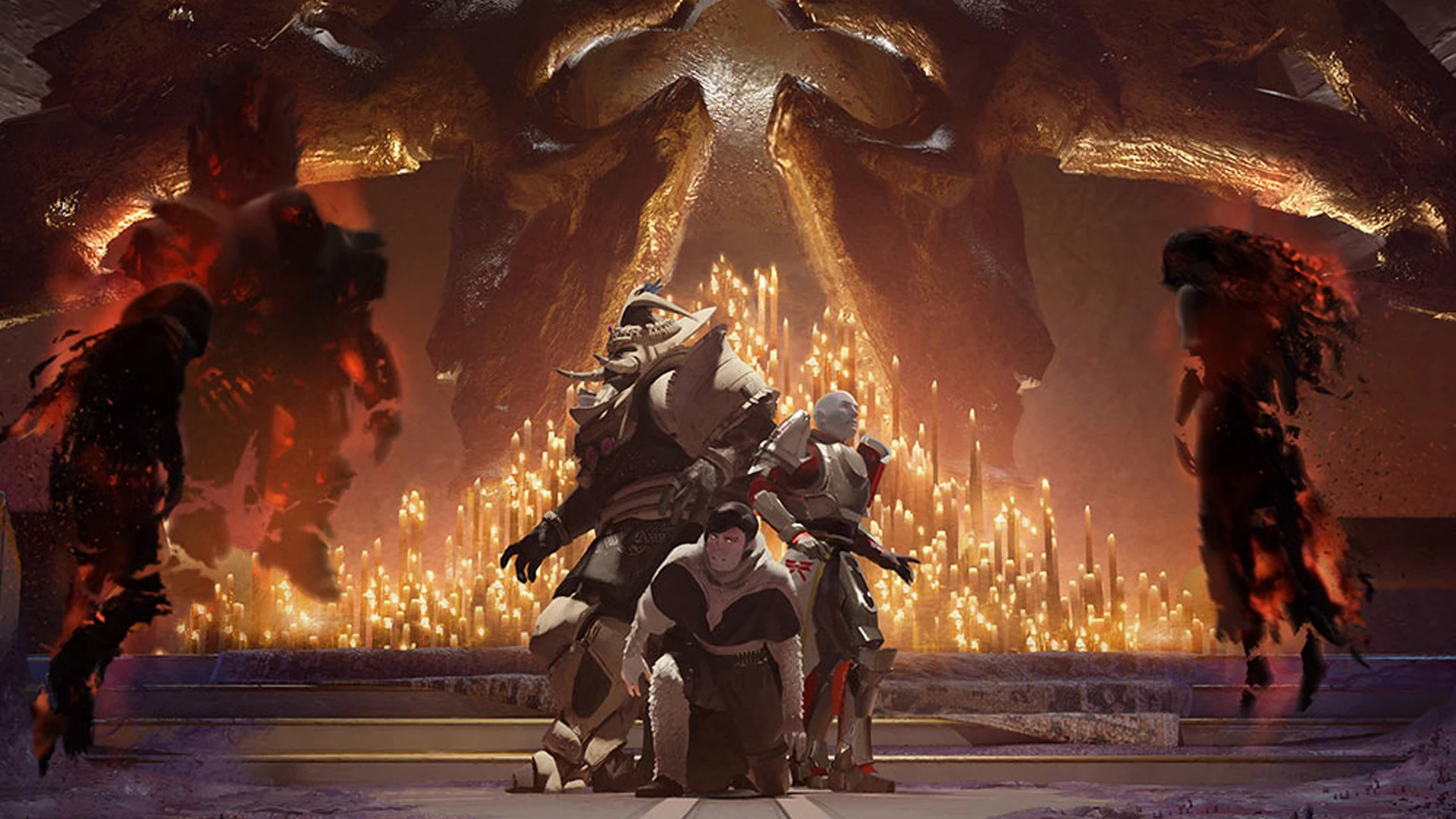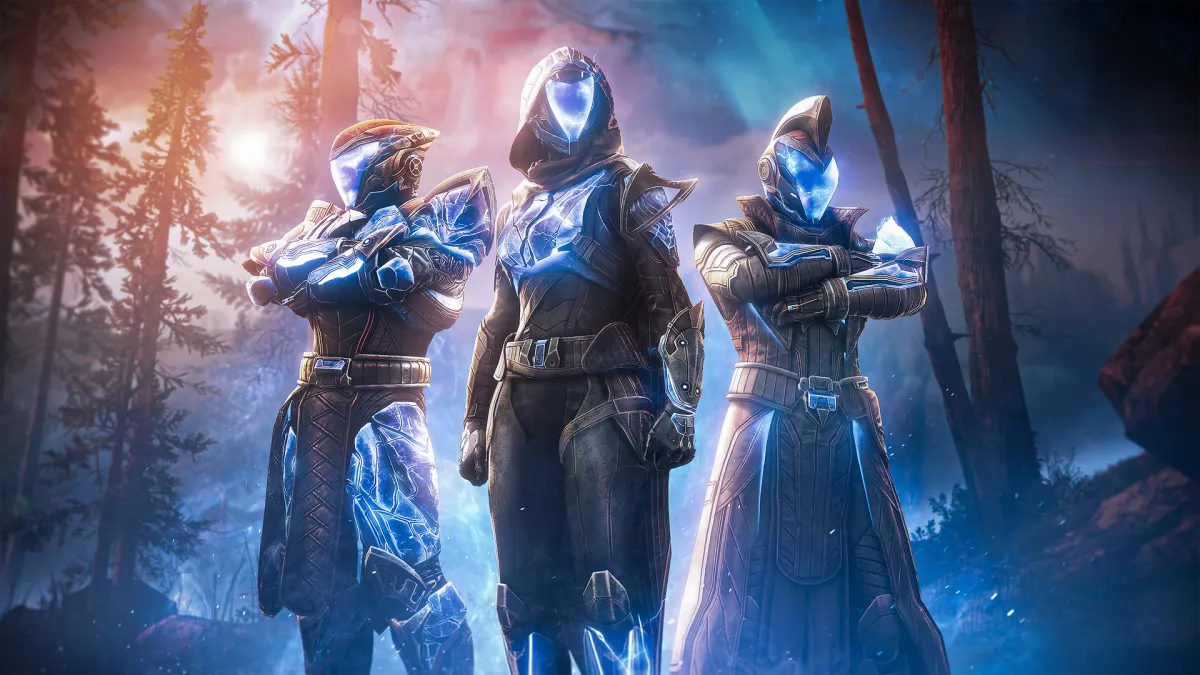Storytelling in a live-service game is an unenviable task. Destiny 2 has been trying, and sometimes failing to do so, for years. Not only does developer Bungie need to tie together the narratives of its yearly expansions, but it has to do so in the intervening time with three-month seasons as well. Worse, every act has to connect like links in an ever-lengthening chain, simultaneously expanding on established lore and building new stories players can invest in.
The team at Bungie is as successful as it has been thanks to the years of experience they bring to the table. The Destiny series has, alongside Fortnite, helped codify some of how ongoing stories are told. The effort has been admirable, if inconsistent, not only creating an interconnected world but also filling it with characters that can help tell meaningful stories.
At their best, these seasonal narratives offer thought-provoking and emotionally charged moments that transcend Destiny 2 and leak into the wider gaming space. Season of the Haunted, for instance, saw us trading a bit of our space magic for a more personal journey confronting trauma and healing.
Haunted’s functional but uninteresting gameplay loop aside, the narrative was incredibly intimate, focusing on human struggles that have lasted millennia and showing that Destiny was capable of nuance and subtlety. Themes of guilt, self-doubt, and feelings of inferiority in the face of our heroes and those we cared about — all of these took center stage. I would even say the story was more effective than the Witch Queen expansion campaign, as the time spent between beats gave players like me time to reckon with the feelings they brought up, much like the characters in the game did.
The same, sadly, cannot be said of the more recent Seasons: Plunder and Seraph. Where Haunted was sometimes surprising and deeply moving, Plunder and Seraph are predictable, less complicated, and lack weight. Seraph in particular is telling a story told a thousand times in science fiction: An AI breaks free of its original programming to find value in the humanity of the people around it. Add in a stereotypical evil genius who sees value only when it benefits himself, and you can start building a list of tropes a mile long.

The Season of Plunder was a little better, telling a relatively solid story of a father trying to protect his child from the mistakes of his past. If you’re at all a student of storytelling, you’ll know how the daughter finds out about said past, how she’ll react, and the father’s reasons for doing the hiding. That the character providing solace to both parties was the Drifter, a ne’er-do-well initially brought into Destiny 2 to start breaking the facade that Light and Dark are fundamentally based on morals, was a nice touch, though.
And for as many complaints as I may have with the structure and throughline of these stories, I think there is value in a familiar tale well told. Classic narratives haven’t stood the test of time for no reason, and as such it’s incredibly difficult to not make them feel familiar. It’s also easy to tell them poorly, as it doesn’t take much to fall so far back into the tropes that you reach cliche territory, and what was once entertaining becomes tedious.
In Season of Plunder, for instance, despite how many horrible things Mithrax (one of the main story NPCs) had probably done in his past and how naive his adopted daughter Eido was to them, I still wanted to see how everything would resolve. Knowing the framework of media does not have to take away from enjoying the details that eventually make their way into that framework.
Even watching the Season of the Seraph narrative unfold was enjoyable, where Rasputin, an ancient, advanced AI-powered weapon of war, learns that humanity’s imperfection is our most beautiful quality. Realizing that “ends justifying the means” is rarely the right way to accomplish anything valuable, reassuring those who care for him, and being the first real set of outside eyes in a long time — that was all a great experience.

Of course, all these seasonal narratives cannot overlook the fact that Destiny 2 is ultimately a game about space magic and godlike beings being turned into guns. Moreover, they must all somehow feed into the next major expansion. Their stories must straddle the line of character-focused story asides with grand space opera set pieces. Every small interaction must somehow advance toward another cosmos-defining battle. Somehow, Bungie manages to do so almost every season.
As with most of Year 5 of Destiny 2, Season of the Haunted had the most important, most impactful moment. Calus, an antagonist from the game’s first months, has transcended his simple trappings as the first raid boss with some indeterminate lore — he’s become one of the primary forces pushing us toward the Lightfall expansion. His final fight in Haunted isn’t memorable gameplay-wise, but its narrative implications are immense, given the years of build-up from the vanilla game to the Season of Opulence and Haunted.
Plunder gave us a more subdued and somewhat unsatisfying end to the seasonal story, but it nonetheless paid off close to a year of story from before The Witch Queen itself launched. Seraph’s ending has to be nigh on cataclysmic, but with Rasputin’s arsenal and an actual war god keyed to face off in the two weeks leading to Lightfall, that seems all but assured.
The biggest problem for the Destiny 2 seasonal model so far is that its storytelling and its gameplay are rarely equal. One always overshines the other. Speaking only of the writing, however, they are all commendable stories, whether breaking new ground or treading the old. Hopefully, the year of Lightfall brings just as much interesting content, and hopefully, it’s even better.






Published: Feb 12, 2023 01:18 pm